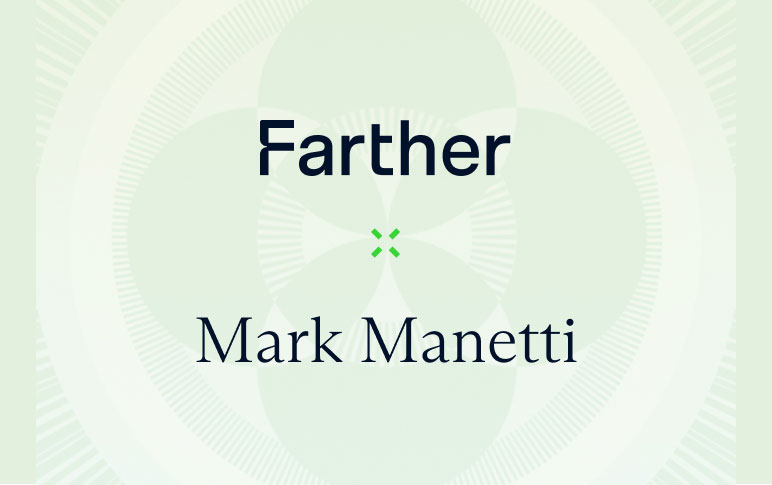Charles Schwab is suing a former advisor it accuses of being a “disloyal employee” for taking confidential information for wealthy clients and then trying to solicit them to his new firm.
Bạn đang xem: Schwab sues ex-advisor for soliciting wealthy clients for RIA
Schwab filed suit in federal court in Texas on Tuesday against Roberto Ivan Ortega, a former vice president and financial consultant who had been entrusted with working with ultrahigh net worth investors from the firm’s Houston-area branch office in The Woodlands, Texas. The people Ortega was servicing had more than $1.5 billion held at Schwab and helped generate hundreds of thousands of dollars of revenue and profits a year, according to the suit.
Ortega abruptly resigned on July 1 and is now at Nhabla, a Spring, Texas-based RIA that specializes in working with high net worth clients. Nhabla was first registered with the Securities and Exchange Commission in 2022. Its latest form ADV, filed on Dec. 9, lists $108,660 in assets under administration.
READ MORE:
But almost two months before leaving, Ortega began paying unusually frequent visits to a central database containing information on Schwab clients, the suit states. He viewed confidential data for thousands of customers throughout May, according to the suit.
Xem thêm : 4 Signs You’ve Neglected Your Grown Children’s Financial Education and What To Do About It
Schwab alleges that several of its clients have told it recently that Ortega has reached out to solicit them for his new firm. As a financial consultant, Ortega had access to names, phone numbers, transactional histories, accounts balances and other information for wealthy Schwab clients needing advanced services like financial planning, estate planning and retirement planning.
Schwab alleges the data was highly confidential and would have been impossible to obtain through a third party. Competitor firms would find the information highly valuable because it would “enable them to target financial products, services, and marketing efforts to a pre-selected elite group of clients without the need to spend the significant amount of time, money, and resources Schwab has spent to identify and develop such clients,” according to the suit.
“It bears emphasis that Ortega did not develop the clients he serviced at Schwab through cold calls or his own connections in the way that brokers at other brokerage firms do,” the suit states. “Instead, Schwab provided him with pre-existing Schwab clients to service or qualified leads to develop.”
Ortega and his new firm, Nhabla, did not return multiple messages seeking comment.
A spokesperson for Schwab said: “Schwab considers the protection of client information and confidentiality to be of utmost importance and expects that its representatives will comply with their contractual and legal obligations. We intend to enforce our rights and hold Mr. Ortega accountable for violating his obligations and taking Schwab’s confidential information.”
Schwab’s suit specifically accuses Ortega of violating contract provisions requiring him to provide four weeks’ notice before resigning, barring from soliciting Schwab clients for 18 months after leaving and prohibiting from using confidential customer information. It seeks a court injunction requiring Ortega to return any Schwab data he may have in his possession and to cease reaching out to former clients until the dispute can be resolved by a Financial Industry Regulatory Authority arbitration panel.
Brian Hamburger, the chief counsel of the Hamburger Law Firm, said the case is a stark reminder of just how easy it has become for large brokerage firms to monitor employees’ activities with digital client accounts. Schwab’s lawsuit includes a chart showing that Ortega had a long-established pattern of accessing the firm’s client database roughly 10 times a day.
Xem thêm : Melissa Ballard, PYA Waltman Capital, LLC
That all changed on May 6 and May 7, when he went in more than 1,000 times, “a marked departure from his typical level of access,” according to the suit. Some of the visits to the database occurred during the middle of the night.
“From a timing perspective, Ortega’s access was inconsistent with any legitimate business purpose—Ortega had no need to be accessing Client Central in such large numbers and at such late hours,” according to the suit.
Hamburger said many firms strengthened their monitoring systems during the COVID-19 pandemic, when remote work increased the need for keeping tabs on employees operating at a distance from a home office. The leash is only going to get tighter as firms find ways to use artificial intelligence, machine learning and other technologies to ingest reams of data and sound warning buzzers about possibly untoward activity.
“While Schwab was able to pull this information post-employment on this individual, there are firms that are beginning to surveil this in real time,” Hamburger said. “And, ultimately, they’ll be using AI to identify aberrations in behavior, which could be much more slight. It could be looking at punch cards to see what times people are coming in and out of offices, the number of times they are accessing certain screens, their print jobs, the number files they are retrieving.”
Schwab said it sent several letters asking Ortega to stop using its confidential data to solicit clients. In a response dated July 26, Ortega and his lawyers contended Schwab’s allegations were unfounded.
Schwab said it then interviewed people who had worked with Ortega who recalled him taking out his cellphone and using it to snap photos or make videos of screens displayed on his laptop. Schwab’s suit says Ortega eventually viewed data for 2,295 clients, only about 365 of whom had been assigned to him.
“Thus, it appears Ortega not only intended to take information concerning his assigned practice, but also to take information concerning other Schwab clients he was not assigned to service,” the suit says.
Nguồn: https://horizontalline.icu
Danh mục: News







